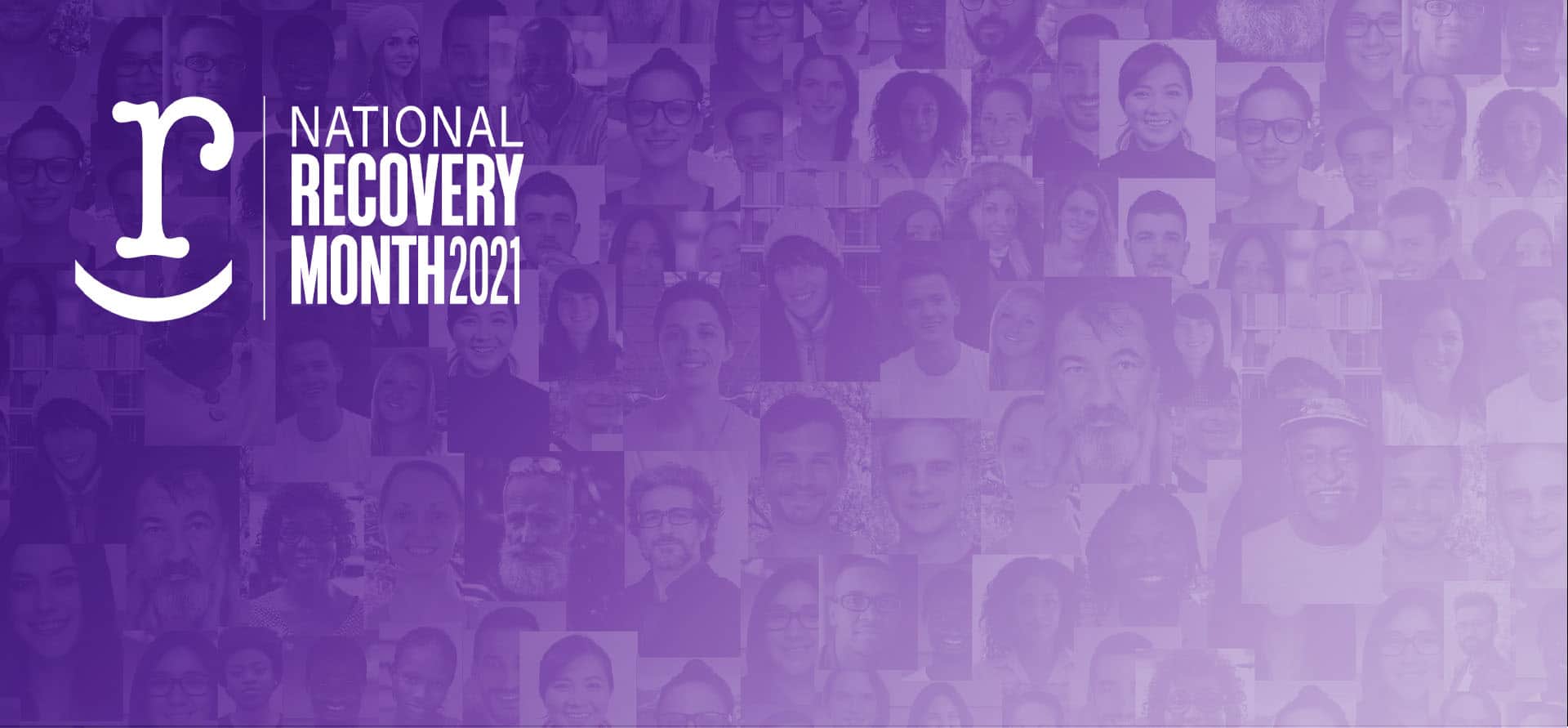
Recovery is for Everyone
Every person, Every Family, Every Community
We Level Up Proudly Celebrates National Addiction & Mental Health Recovery Month
National Recovery Month was created by the Substance Abuse and Mental Health Services Administration (SAMSHA) to increase awareness and understanding of mental and substance use disorders and recognize the people who recover. Each year, we celebrate the millions of people living in recovery from mental and substance use disorders and the dedicated workers who make that recovery possible. As we take the time to celebrate, we also remember the people who have lost their lives fighting their illnesses. But most importantly, we focus on the people who still need help and how to help them.
This long-standing observance educates people that those who are diagnosed with mental health or substance use disorders can and do live healthy, fulfilling lives with the help of prevention services, treatment, and recovery programs.
National Recovery Month explores how integrated care, strong community, and proactive leadership contribute to treatments and programs that enable sustainable and meaningful recovery for those who suffer.
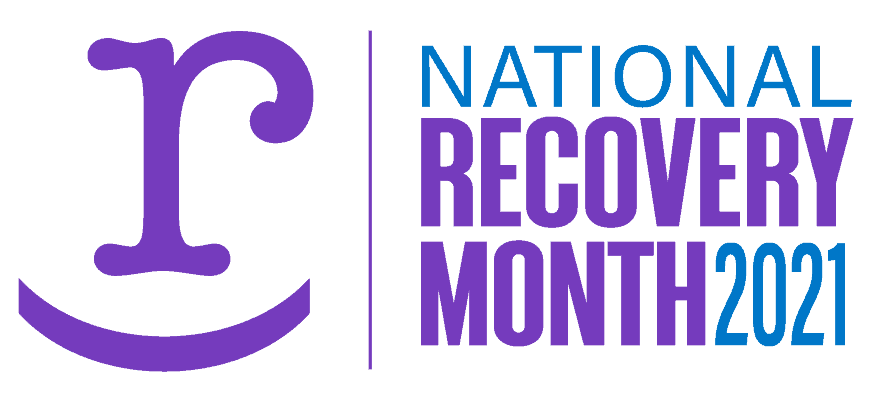
National Recovery Month for Everyone
This year’s theme will focus on promoting and supporting new evidence-based treatment and recovery practices for mental health and substance use disorders. The aim is to reinforce on a national level, the message that mental health is essential to overall health, prevention works, and we do and can recover. Millions of Americans face the potentially devastating effects of mental health and substance use disorders each year.
Mental health and substance use disorder not only impact the life of the individual suffering directly, but they also impact the lives of the people they’re surrounded by; family, friends, neighbors, mentors, and so on. It’s crucial to continue reducing the stigma surrounding these issues so that those who suffer feel safe enough to ask for the help they need.
“Recovery Month spreads the positive message that mental health is essential to overall health, prevention works, treatment is effective, and people can and do recover.“
nationalrecoverymonth.org
“At We Level Up Recovery Centers our mission is to lead clients to long-term recovery. We know that treatment for addiction can begin with medical detox, mature into inpatient addiction rehabilitation. However, just as critical is combining dual-diagnosis mental health care in conjunction with traditional therapy. Sustained recovery requires a steadfast science-based treatment program along with ancillary family and alumni support.
That’s why we provide robust and complete recovery tracks to go for real long-lasting change for our clients and their families.” Said Ryan Zofay, founder of the We Level Up Recovery Centers organization.
Join Ryan Zofay’s breakout recovery success events. Learn more about the nationally acclaimed The Level Up Series by Ryan Zofay.
The Impact of COVID-19 on Mental Health and Substance Abuse
On April 30th of this year, the Biden administration released “A Proclamation on National Mental Health Awareness Month,” recognizing May as National Mental Health Awareness Month. In addition, 34 states have declared May as Mental Health Awareness Month at a statewide level. According to the Substance Abuse and Mental Health Services Administration (SAMHSA) [1] Approximately one in five adults in the U.S. experience a mental illness, substance use disorder, or both. That ratio, should it still exist in 2030, equates to approximately 15 million people who will suffer from mental health disorders.
The manifestation of depression and anxiety as a result of the pandemic among otherwise mentally healthy individuals flipped the script. As the recovery community has been stating for years, the disease of addiction and mental health disorders do not discriminate. This rapid surge of mental health issues created awareness surrounding the urgency involved in seeking help. Although the COVID pandemic is still lingering, our country is finally taking the necessary steps to highlight the importance of mental health awareness programs and prioritize the need for ongoing evidence-based training practices.
Drug Overdose Death Trends
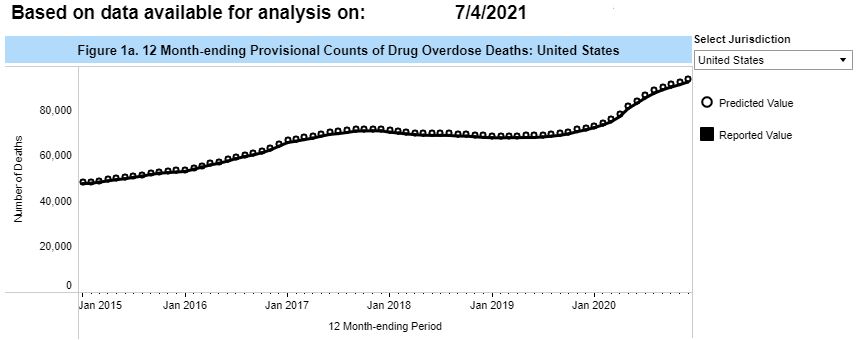
Acceleration of Overdose Deaths
The latest numbers suggest an acceleration of overdose deaths during the pandemic. Overdose deaths involving cocaine also increased by 26.5 percent. These deaths link to co-use or contamination of cocaine with illicitly manufactured Fentanyl or heroin based on early research. Overdose deaths involving psychostimulants, such as methamphetamine, increased by 34.8 percent. The number of fatalities involving psychostimulants now exceeds the number of cocaine-involved deaths. [1]
- Opioid-involved overdose deaths rose from 21,088 in 2010 to 47,600 in 2017 and remained steady in 2018 with 46,802 deaths. A significant increase in 2019 to 49,860 overdose deaths followed.
- U.S. overdose deaths involving psychostimulants with abuse potential from 1999 to 2019. Overdose deaths rose from 547 in 1999 to 16,167 in 2019.
- Drug overdose deaths involving cocaine rose from 3,822 in 1999 to 15,883 in 2019.
- Drug overdose deaths involving antidepressants have risen steadily from 1,749 in 1999 to 5,269 in 2017. Since then, deaths had remained steady at 5,175 in 2019.
- There were 70,630 drug-involved overdose deaths reported in the U.S. in 2019. 68% of cases occurred among males. [2] Men are more likely to misuse multiple drugs than women.
Most of these deaths are preventable, but the “tough on crime” rhetoric of the decades-long war on drugs coupled with the stigma connected with drug use have hindered the general adoption of life-saving overdose prevention and treatment plans.
It’s about isolation, interruption of life, and maybe worsening of mental disorders due to the spread of (primarily illicitly produced) Fentanyl, along with lockdowns, job losses, and stress from the Covid-19 pandemic. Fentanyl is 50 times more potent than heroin and is now often cut with other widely used illegal drugs, usually when the user is negligent.
Warning Signs of Substance Abuse
Identifying potential signs of drug abuse is the first step towards helping yourself or your loved one.
Behavioral Changes
Physical Changes
- Developing troubles at work or school
- Lying about the substance or how much they use
- Becoming furious when asked about their use
- Changing friends groups
- Secretive behavior, lying, stealing
- Changes to regular habits or mood swings
- Discontinuing social activities
- Unlawful behavior
- Appearing intoxicated more often
- Difficulties with memory or cognition
- Strange tiredness
- Bloodshot eyes
- Rapid weight fluctuations
- Poor hygiene
Suicide is Not a Solution
Each year more than 34,000 individuals take their own life, leaving behind thousands of friends and family members to navigate the tragedy of their loss. Suicide is the 10th leading cause of death among adults in the U.S. and the 3rd leading cause of death among adolescents.
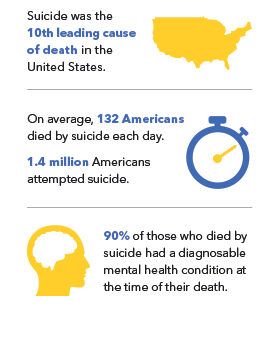
Warning Signs of Suicidal or Concerning Behavior:
- Threats or comments about killing themselves, also known as suicidal ideation, can begin with seemingly harmless thoughts like “I wish I wasn’t here” but can become more overt and dangerous
- Increased alcohol and drug use
- Aggressive behavior. A person who’s feeling suicidal may experience higher levels of aggression and rage than they are used to.
- Social withdrawal from friends, family and the community.
- Dramatic mood swings indicate that your loved one is not feeling stable and may feel suicidal.
- Preoccupation with talking, writing or thinking about death.
- Impulsive or reckless behavior.
Resources
Prevention, treatment, and recovery programs across the nation will be hosting both virtual and in-person events throughout the month of September to discuss strides made in recovery. People with substantial lengths of recovery time and experience share their success stories to increase awareness and understanding about mental health and substance use disorders. We Level Up anticipates the constantly shifting complexities of mental health by proactively adjusting treatment components to each individual’s needs. To learn more, check out these resources:
- Our Family Program
- Our Holistic Therapy Approach
- The Alumni Program
- Intervention Services
- Detox Treatment Programs
- Inpatient Rehab Facilities
- Residential Rehab Facilities
- Dual Diagnosis Therapy
- 5-Star Mental Health Treatment
- Relapse Prevention Planning
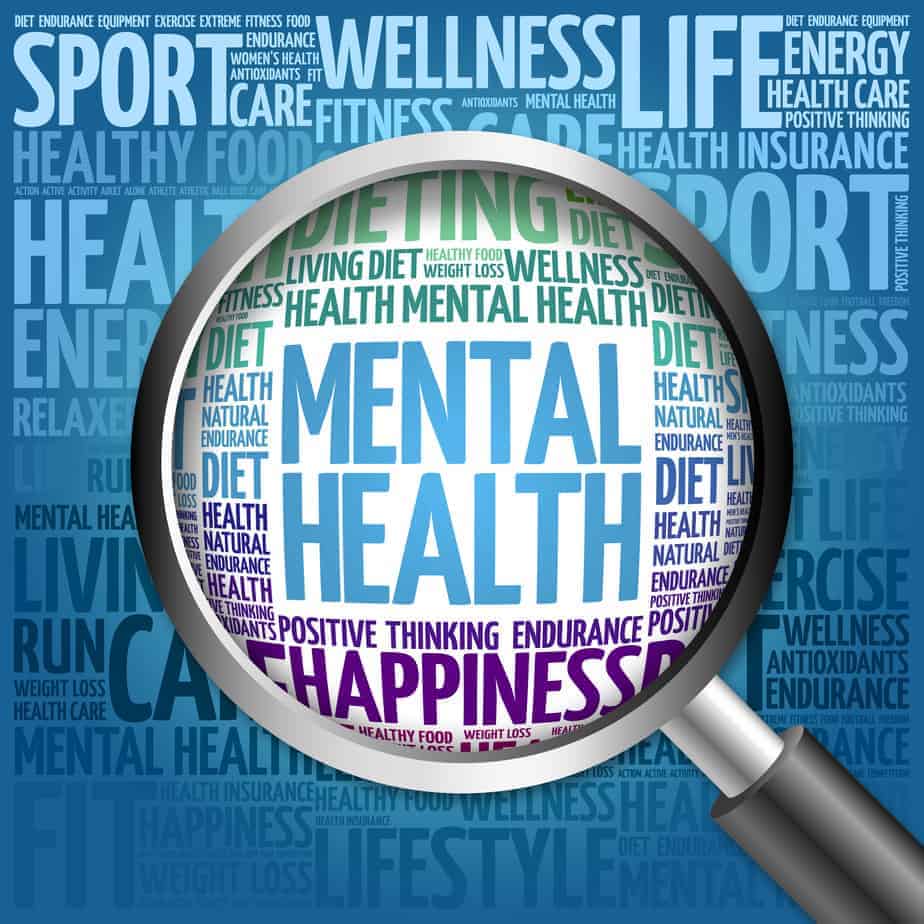
Every journey to recovery is different, but nobody is alone as they navigate their way out of the darkness. The hope, strength, and support from the people who love us are some of our most valuable resources in recovery. By spreading this message of awareness and acceptance every September, we hope that understanding will begin to replace judgment and courage to replace fear.
We Level Up Treatment Center proudly celebrates the 32nd anniversary of National Recovery Month! Our recovery center provides world-class addiction and mental health dual diagnosis treatment with round-the-clock medical professionals available to help you cope. We work as an integrated team providing support through evidence-based therapy and other aspects of mental health and substance abuse treatment. Make this your opportunity to reclaim your life. Call today to speak with one of our treatment specialists. Our specialists know what you are going through and will answer any of your questions.
Your call is private and confidential, and there is never any obligation.
Sources:
SAMHSA – Substance Abuse and Mental Health Service Administration
The White House – https://www.whitehouse.gov/briefing-room/presidential-actions/2021/04/30/a-proclamation-on-national-mental-health-awareness-month-2021/
The Level Up Event by Ryan Zofay » Drug Alcohol Addiction Rehab – https://welevelup.com/coaching/the-level-up-event-by-ryan-zofay/
National Alliance on Mental Illness – www.nami.org/About-MentalIllness/Common-with-Mental-Illness/Risk-of-Suicide
For More information on National Recovery Month 2021 please visit – https://rm.facesandvoicesofrecovery.org/
CDC, 2018 Fatal Injury Reports accessed from www.cdc.gov/injury/wisqars/fatal.html on 3/1/20. Find additional citation information at afsp.org/statistics.